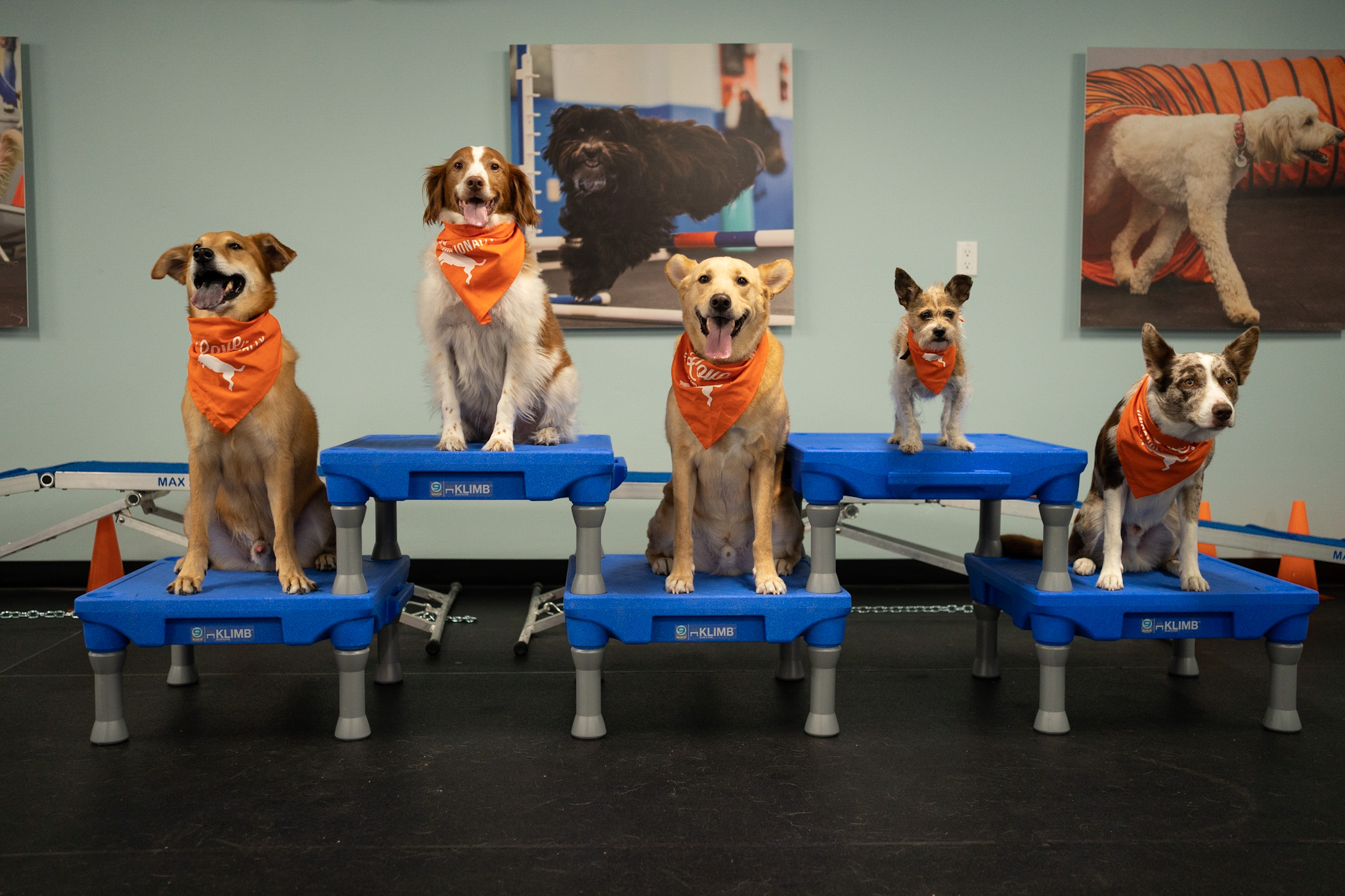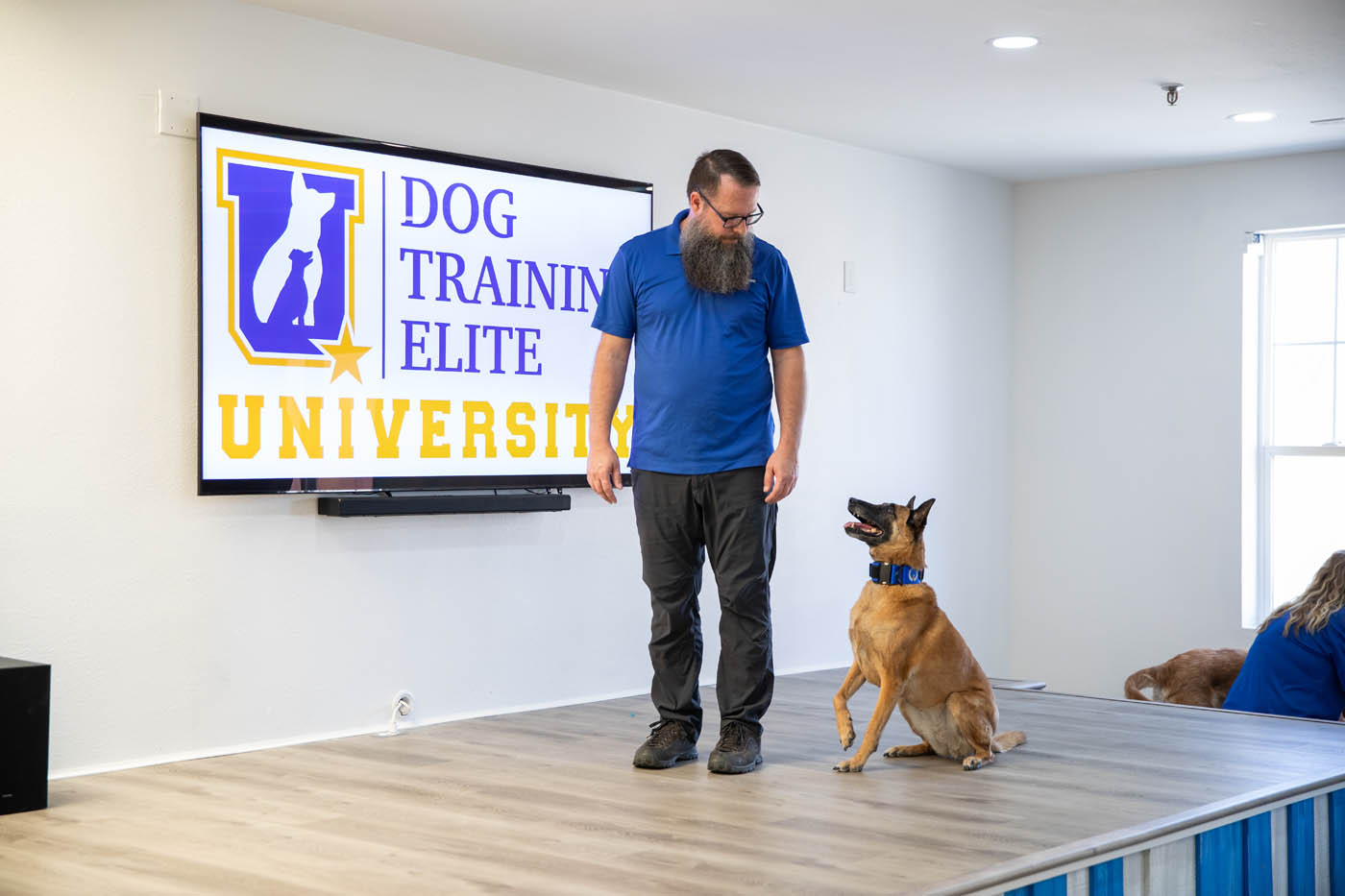Dog Training Charlotte NC: Your Course to a Mannerly Dog
Unlock Your Canine's Prospective: Proven Dog Training Methods for Success
Reliable canine training is a nuanced procedure that hinges on understanding canine behavior and using scientifically backed strategies. By integrating positive reinforcement, developing clear commands, and focusing on socializing, pet proprietors can cultivate a productive partnership with their pet dogs.
Understanding Pet Dog Behavior
Comprehending dog behavior is crucial for reliable training and fostering a positive partnership between dogs and their owners. A thorough grasp of canine body language, articulations, and social interactions is vital for acknowledging their requirements and feelings. Pet dogs communicate mostly via non-verbal cues; as an example, a wagging tail might show excitement, while pinned ears can signal concern or entry.

In addition, ecological variables play a significant role fit a pet dog's actions. Adjustments in routine, new surroundings, or the existence of unfamiliar people can lead to stress and anxiety or anxiousness in canines. Acknowledging these triggers enables owners to mitigate negative reactions and establish suitable training strategies.
Eventually, a deep understanding of canine actions lays the structure for successful training techniques, enhancing both habits and the total bond in between the pet and its owner. Dog training. This understanding is crucial for cultivating a well-adjusted, pleased canine buddy
Positive Support Strategies
Reliable training counts greatly on favorable support strategies, which have actually been revealed to yield considerable cause shaping preferred actions in canines. This technique includes compensating a canine for displaying details actions, thereby raising the possibility that these actions will certainly be duplicated. Incentives can take various types, including deals with, praise, toys, or playtime, depending upon what inspires the individual canine.

It is important to slowly phase out rewards as the dog learns the behavior, transitioning to recurring support. This technique keeps the actions over time while stopping dependency on consistent rewards. By concentrating on favorable support, trainers can cultivate a trusting partnership with their dogs, advertising a healthy and balanced and cooperative training environment that enhances total obedience and efficiency.
Establishing Regular Commands
A fundamental facet of effective pet training is the facility of regular commands. Uniformity in commands is crucial for reliable communication between the pet dog and the fitness instructor. When commands are consistent, pet dogs learn to associate details words with preferred actions, which increases the training process and boosts understanding.
To develop consistent commands, it is essential that all member of the family use the same terms and gestures. If one individual uses "rest" while one more states "rest down," it can create confusion for the dog. Select clear, distinct words for commands and guarantee everybody involved more tips here in the canine's training sticks to these choices.
Furthermore, repeating is key. Strengthen commands with regular practice, making sure that the pet dog receives enough possibilities to react correctly. When a pet successfully follows a command, immediate favorable reinforcement ought to adhere to. This can be in the kind of treats, praise, or playtime, solidifying the connection between the command and the activity.
Finally, hold your horses. Developing consistent commands takes time and initiative. With commitment and clarity, you will certainly assist your canine create a solid understanding of expectations, eventually bring about a well-behaved friend.
Socialization and Direct Exposure
Interacting socially a canine is important for promoting a well-adjusted and certain companion. This process entails subjecting your dog to a range of atmospheres, individuals, and various other pets to establish their social abilities and versatility. Early socialization, preferably in between the ages of 3 to fourteen weeks, is essential, as it prepares for a dog's future behavior.
During socialization, dog behavior modification training near me goal to provide positive experiences in different settings, such as parks, busy roads, and homes with various other pets. Introduce your canine to different stimuli, consisting of noises, sights, and scents, making sure that each encounter is satisfying. This direct exposure aids mitigate anxiety and anxiousness, leading the method for an extra resistant canine.
Taking part in regulated team play sessions with other puppy program canines can also improve social skills, educating your family pet proper communications and boundaries. Always check your pet dog's comfort level throughout these experiences, slowly enhancing direct exposure as their self-confidence grows. Keep in mind, the objective is to create an all-round pet that flourishes in varied scenarios, promoting a harmonious connection with both human beings and various other animals. Prioritizing socializing will dramatically contribute to your canine's general joy and actions throughout their life.
Overcoming Common Training Challenges

Dogs may struggle to concentrate in hectic or unfamiliar setups. Gradually desensitize your pet dog to diversions by beginning training in a quiet atmosphere and gradually presenting more stimuli as they end up being competent.
Furthermore, behavioral problems like leaping or excessive barking can end up being frustrating. Address these by showing different habits, such as resting calmly when greeting guests. Consistency and perseverance are critical; enhance wanted behaviors consistently and stay clear of abuse, which can bring about complication.
Finally, identify that each pet dog is distinct, and training timelines may differ. Dressmaker your method to your pet's specific requirements, and seek professional guidance if required. With willpower and the appropriate techniques, overcoming these challenges can cause a trained, pleased canine friend.
Verdict
To conclude, opening a pet's prospective requires an extensive approach that integrates an understanding of canine habits, the application of positive reinforcement techniques, and the facility of constant commands. Early socialization and direct exposure to varied environments better boost a pet's versatility and self-confidence. By attending to common training difficulties with customized techniques and perseverance, a cooperative and unified partnership between dog and handler can be cultivated, inevitably causing a well-behaved companion with the ability of prospering in different situations.
Reliable canine training is a nuanced procedure that hinges on understanding canine habits and using medically backed strategies.Recognizing pet behavior is vital for reliable training and promoting a positive connection between pets and their proprietors.Effective training counts greatly on positive reinforcement strategies, which have actually been shown to generate substantial outcomes in shaping desired actions in dogs. When commands are uniform, pet dogs discover to associate certain words with desired behaviors, which increases the training process and boosts understanding.
In verdict, unlocking a canine's prospective requires a detailed method that integrates an understanding of canine actions, the application of positive support techniques, and the facility of consistent commands.